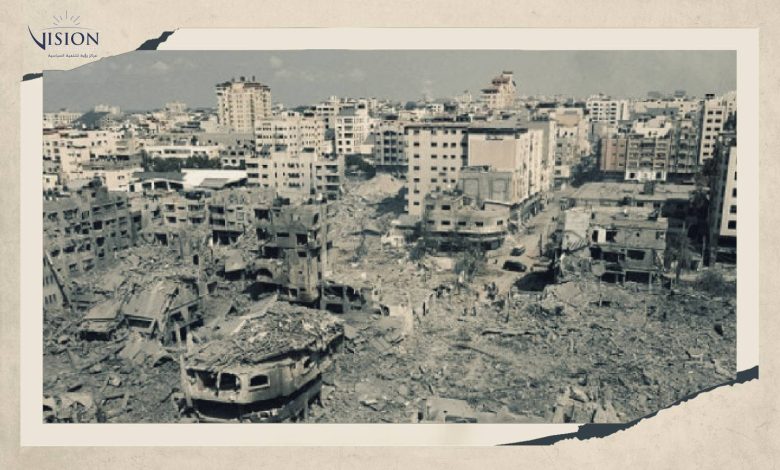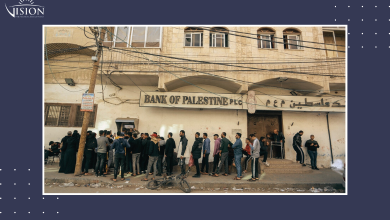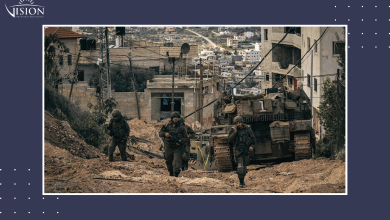“The Revitalized Palestinian Authority”: An Attempt to Understand “Israeli” Perceptions.

Karim Kurt*
The term “Revitalized Palestinian Authority” has been frequently echoed in the context of discussions about “the day after” in Gaza post-Hamas rule, as phrased by the occupiers and their allies. This is particularly after U.S. President Joe Biden echoed it in an opinion article published in The Washington Post. Regardless of the occupier’s ability to realize the objective of dismantling Hamas during this offensive, the definition of the ‘revitalized authority’ remains ambiguous, as Biden did not elucidate his conception of this term.
The United States has reiterated this stance on several occasions. The U.S. Department of State on December 13 stated that “the Palestinian Authority is not in a position to govern Gaza, but we believe it represents the Palestinian people and should be reformed and revitalized to move towards governing areunified territory that includes the West Bank and Gaza.” This includes the necessity for anti-corruption reforms, empowerment of civil society, support for free press, and also involve President Abbas relinquishing some of his powers by appointing a deputy and transferring more executive powers to the Prime Minister, as well as introducing new figures into the leadership.
These American demands do not reflect the “Israeli” viewpoint regarding the renewal of the Palestinian Authority. The Prime Minister of the occupying government has explicitly stated on more than one occasion that he will not allow the Palestinian Authority to return to the Gaza Strip, formulating the famous phrase “no Hamas-stan or Fatah-stan.” This stance is especially pertinent amid the escalating public “Israeli” criticism of the Authority, accusing it of being “complicit in terrorism” because it finances “terrorists” and their families and educates their children on “terrorism.” This ongoing assault on the Palestinian Authority, coupled with the withholding of tax revenues and the prevention of Palestinian workers from accessing their jobs inside Israel – even if it’s due to war – and other imposed restrictions on the West Bank, may be a precursor to forcing the Authority to undertake substantial changes in its policies in exchange for resolving these crises.
it is crucial to understand the “Israeli” perception of the “Revitalized Authority.” A number of research and media centers within the occupation have started to outline this concept and what the occupiers might plan within this framework. In this report, we will endeavor to clarify this conception and its characteristics, relying on the outputs from these research centers.
The earlier conceptions have been discussed in two main centers presumed to have differing visions regarding the future of the Palestinian issue. While the “Israeli” Institute for National Security Studies advocated for the establishment of a Palestinian state, within a specific concept, to prevent the scenario of a “bi-national onestate,” the Jerusalem Institute is one of the right-wing research centers that rejects both the two-state and one-state solutions. Nonetheless, their visions for the future of the Palestinian Authority are nearly identical.
These conceptions are, in fact, a plan to end the Palestinian cause under the guise of “reforming the Authority” and transforming it into civil administrations and wholly subordinate to the occupation, controlling its economy, salaries, and institutions, leaving it with complete security control. This vision is related to the concept of the occupation’s Finance Minister, the settler “Bezalel Smotrich,” in his well-known “Decisive Plan.” In this plan, Smotrich revived old Zionist propositions about the future of Palestinian territories, advocating for dividing the West Bank into several independent local administrations to dismantle the Palestinian people and prevent them from achieving their national aspirations. He sees the implementation of this scheme coupled with a “voluntary migration” process that the occupying state will undertake and bolster to empty the West Bank and Gaza of as many Palestinians as possible.
Recently, the term “voluntary migration” has been frequently echoed in “Israeli” discussions, where “Netanyahu” explicitly stated in a closed meeting with Likud deputies that he is now working on a “voluntary migration plan” and that the only problem he faces is finding countries willing to accept the refugees, and he is working on solving this issue.
If the occupation manages to implement its conception of the “Revitalized Authority” in the West Bank, the displacement will also escalate there.
It’s uncertain that the occupation will be able to execute its perceptions for “the day after” because it’s still effectively incapable of implementing its plans for “the current day.” The Palestinian resistance and its allies remain able to thwart the occupation’s schemes. However, it’s crucial for the Palestinian side to have a clear attitude about these conceptions.
*Researcher at the Yabous Institute for Consulting and Strategic Studies, Ramallah.





